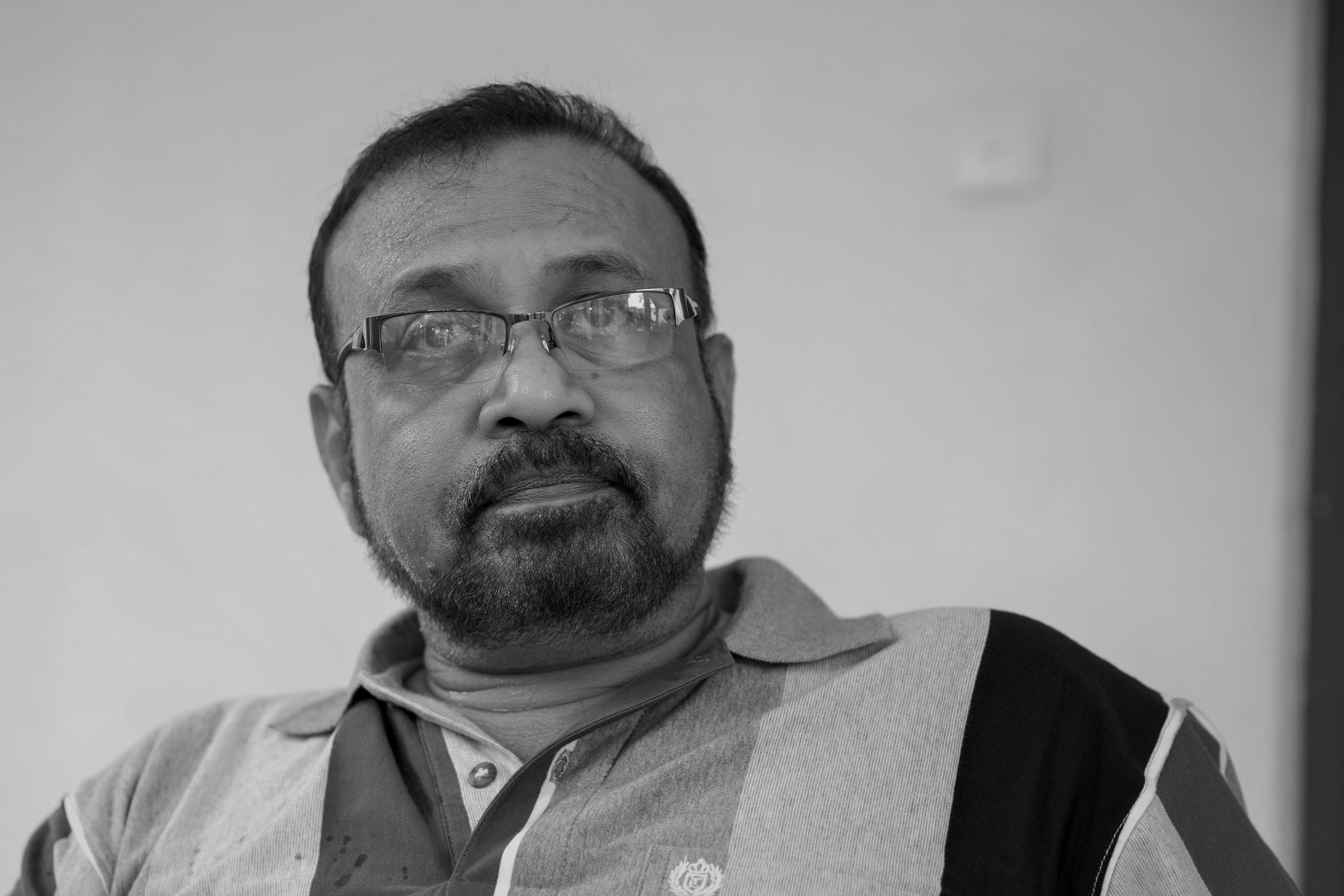Image: Fr Jeyabalan Croos has worked to make the conditions of the Tamil people in Sri Lanka known to the outside world. He has not lowered his guard and still claims “the right to freedom” of his people. © s.deshpriya.
Pierre Cochez, Jaffna.
Fr Jeyabalan Croos is undoubtedly a fighter. The events that he has faced and the commitment that he has shown leave no doubt that he has a taste for combat, risk, and movement.
He is a Tamil priest who was ordained in 1982 for the Diocese of Mannar in the north of the country, in this land where land and sea mingle together.
It was here that the Portuguese boats landed the first missionaries, who would convert a good part of this coastal people.
Bishop Joseph Rayappu played a key role in the defense of the Tamil people during the civil war that opposed Tamils and Sinhalese.
“He was the voice of the Tamils,” says Fr Jeyabalan, who himself played a significant role, crisscrossing the country by motorbike in a white soutane to make the conflict known to humanitarian workers and journalists from elsewhere.
“The government wanted a war without witnesses so that it would remain secret,” he says. “I had to take risks to make it known to the outside world.
“I transported CNN, BBC and Reuters journalists on my luggage rack,” he explains.
Seated comfortably in a lounge room in the moist evening air at the Jaffna seminary, where he teaches, Fr Jeyabalan seems ten years younger than his 62 years.
Shortly after being ordained, he experienced the “Black July” of 1983 when thousands of Tamils were killed, expelled or burnt by Buddhists in reprisal for attacks led by Tamil Tiger rebels.
He recalls the meals he served to the refugees coming towards Mannar, before leaving to study in Rome for five years.
“I passed my license (in theology) there,” he says. “That helped me greatly, particularly in preaching.”
Later, he returned home to teach for the first time in the Jaffna seminary before working in a parish where he sought support from the Jesuit Refugee Service (JRS). He made initial contact with JRS via an Indian Jesuit, Fr Amal, whom he had met in Myanmar.
It was during this period that he took to his motorbike and began to travel through the Tamil region.
“The Sinhalese soldiers respected my white soutane,” he says.
“Those Buddhists respected religious. Among them, monks are kind of living gods,” he explains.
“On the other hand, the situation was much more delicate with the Indian peacekeeping force which was deployed in the region,” he adds. “They did not know what a religious was and I could not expect any favorable treatment when I moved around.”
Fr Jeyabalan knows what it is to be a priest, however.
“My life is both prayer and action. I am not alone in my fight. Christ is my guide and I often ask myself what he would have done in my place. All Christ’s attention was turned towards the condition of people,” he says.
Now, in Jaffna, as elsewhere on the island, the guns have fallen silent. Fr Jeyabalan observes that the new generation of priests whom he is training have come looking for a “secure place, an easy and comfortable life” in the seminary.
He rages against those who transform seminaries into “peaceful museums whereas we need to take risks and confront the dangers of the world”, he says.
He finds his inspiration in the book, “Jesus before Christianity,” by South African Dominican Albert Nolan.
“He [Nolan] tried to analyze Jesus Christ before he was God. He saw him as a fighter, as a man who faced challenges,” he comments.
In Jaffna, there are few people who believe that the “Tamil problem” is resolved. The city is making a slow comeback after decades of war and isolation.
Yet the gap is widening between the Sri Lankan capital, Colombo, in the south which is caught up in an economic frenzy, and the Tamil capital in the extreme north.
“I would not say we are living in peace,” comments Fr Jeyabalan.
“Certainly, the guns have fallen silent. But we are demanding the liberty of our people, freedom of expression, and for the moment, I do not see things improving,” he says.
Concerning past events, he makes no particular demand that the culpable be punished. But he wants to know the truth.
“We want to know what happened to the disappeared,” he says determinedly.
“We are conscious that 90% of the disappeared are dead. However, we want to know their stories. We ask those who committed reprehensible acts to accept their responsibility.”
